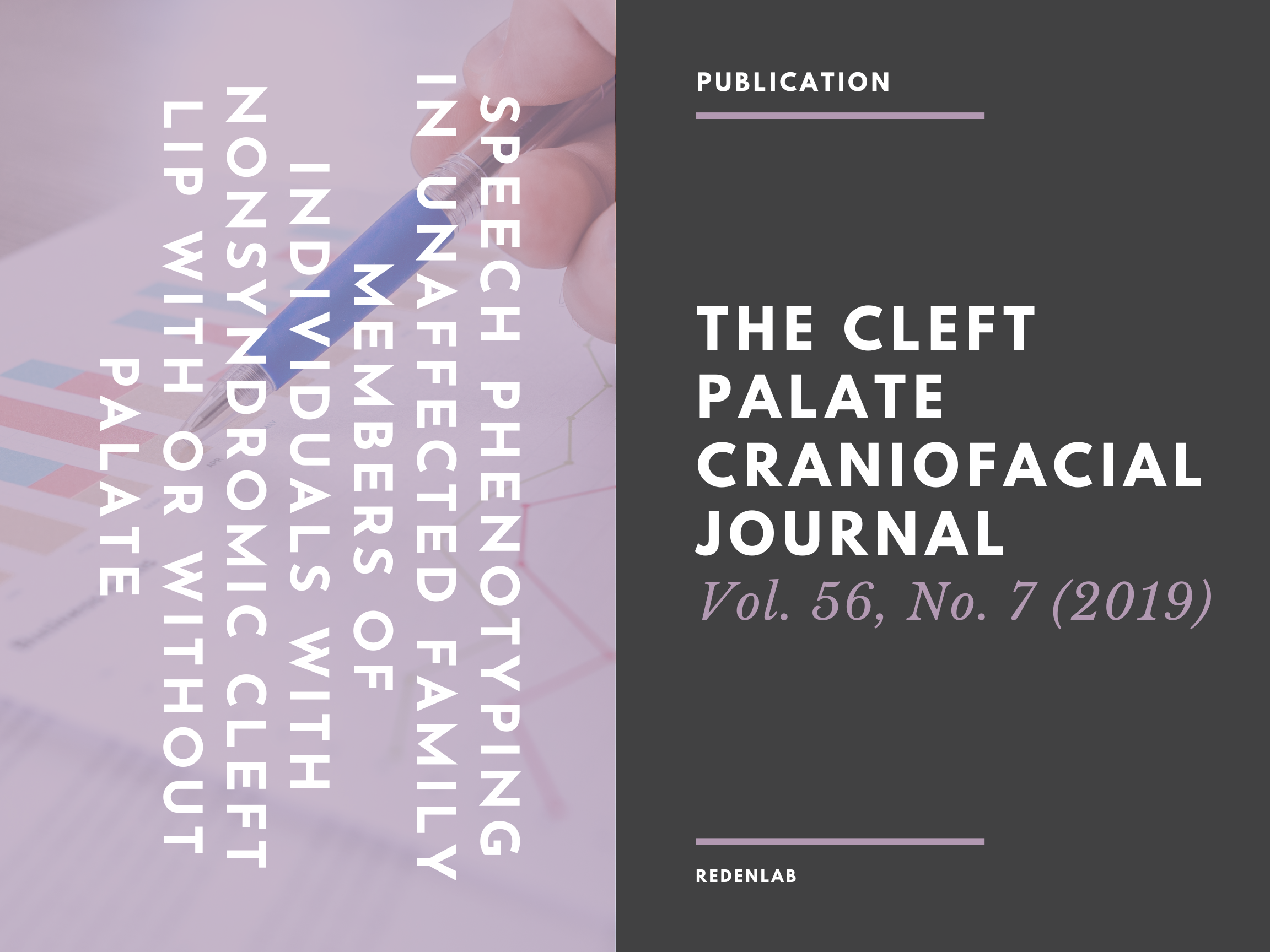SCIENCE: Speech phenotyping in unaffected family members of individuals with nonsyndromic cleft lip with or without palate

OBJECTIVE:
Subclinical phenotypes of nonsyndromic cleft lip with or without cleft palate (CL ± P) may be identified from clinically “unaffected” relatives and could be associated with specific cleft-related gene mutations. It has been hypothesized that velopharyngeal insufficiency (VPI) may be a subclinical phenotype of interest in this population, but this has not been explored quantitatively with appropriate control cohorts. The aim of this case-control study was to compare VPI in at-risk clinically unaffected relatives of individuals with nonsyndromic CL ± P with a low-risk matched normative Australian cohort.
PARTICIPANTS:
Clinically unaffected (ie, with no overt cleft) first-degree relatives of a proband with nonsyndromic CL ± P (n = 189) and noncleft controls (n = 207).
MAIN OUTCOME MEASURE(S):
Perceptual measures of VPI encompassing resonance, nasal emission, and articulation were evaluated using the Great Ormond Street Speech Assessment. Quantitative measures of VPI were obtained from the Nasometer II using standardized adult and pediatric speech stimuli.
RESULTS:
Both perceptual and instrumental measures showed no significant difference ( P > .01) between the VPI in unaffected relatives and the noncleft comparison group. Mean nasalance scores for both groups were calculated and reported according to speech stimuli, age, and sex.
CONCLUSIONS:
Results suggest that VPI, measured through speech, is not a significant subclinical phenotype of nonsyndromic CL ± P. Therefore, further familial genetic investigations exploring VPI may not yield meaningful results. Exploration across multiple subclinical phenotypes in larger cohorts may enable researchers to better understand the multifaceted nature of this complex and heterogeneous anomaly.
Click here for more details.
